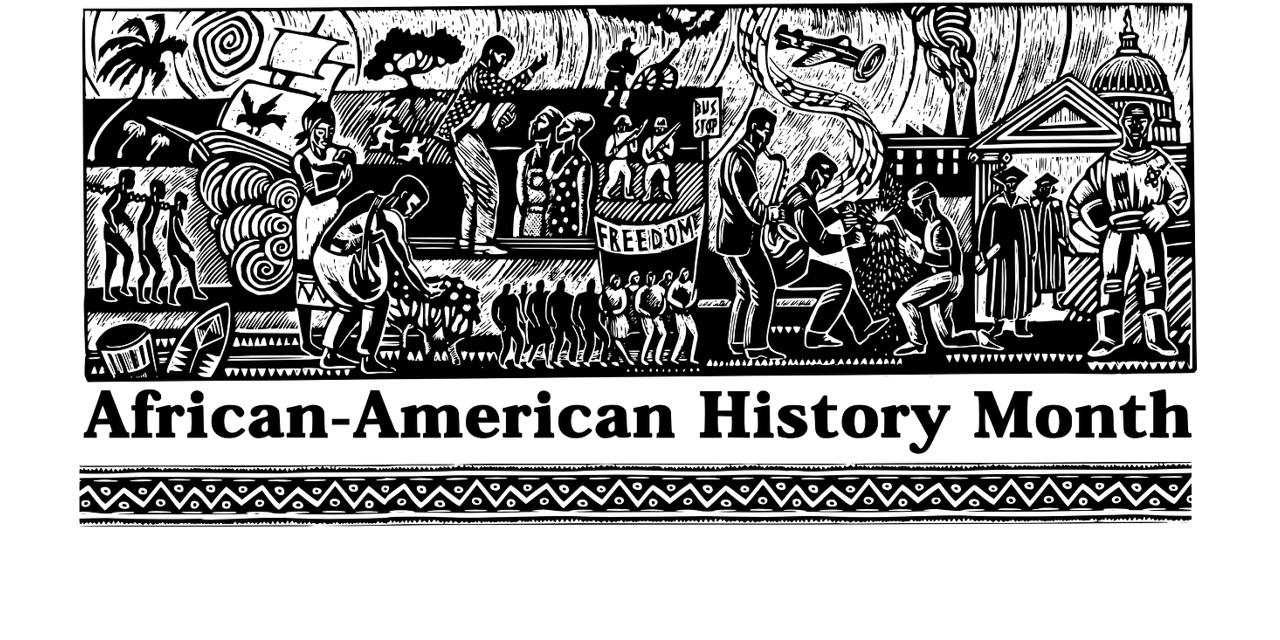The Enduring Significance of Black History Month
Curriculum expanding beyond traditionally recognized figures
February marks the beginning of Black History Month as teachers integrate traditional Black History Month topics as well as more current topics in their curriculum. “I keep in mind the importance of it that it’s not just a month it’s a mindset,” social studies teacher Jessica Kelly said. “You can’t understand what’s going on today without knowing the history behind it.” Photo Credit: Clker-Free-Vector-Images
March 4, 2021
It’s been 45 years since “Negro History Week” evolved into the month-long celebration of Black History Month. This year, the celebration of African American contributions comes with the consciousness of widespread protests over George Floyd’s death and a racial reckoning across the United States. The tradition’s significance still stands; as social studies teacher Jessica Kelly explains, its very purpose lies within those who question its existence.
“Some of the kids in my class, they said, ‘Why do I have to explain why there’s Black History Month to people?’—That’s why,” Kelly said. “We have Black History Month because they’re still people who feel like they need to be explained as to why we would celebrate a group of people that have historically been not celebrated for this long. It’s not that Black people do not have a voice, they do, but that it’s been silenced so often.”
In addition to fighting ignorance, Kelly makes it a point to link Black History Month’s importance with current events.
“All you have to do is look at what’s going on in this country,” Kelly said. “Look at what happened over the summer, look what is happening right now: police brutality, violence, voter fraud, people trying to prohibit certain demographic groups from voting. This year, our life expectancy went down one whole year, but if you’re Black in America, it went down two-point-seven years. That’s systemic racism. That’s why we need Black history in addition to everything else.”
(function(d){var js, id=”pikto-embed-js”, ref=d.getElementsByTagName(“script”)[0];if (d.getElementById(id)) { return;}js=d.createElement(“script”); js.id=id; js.async=true;js.src=”https://create.piktochart.com/assets/embedding/embed.js”;ref.parentNode.insertBefore(js, ref);}(document));
Incorporating Black history into a diverse curriculum is important as sophomore Haleemah Young notes, schools are selective regarding BIPOC (Black, Indigenous, and people of color) history and often only teach about significant figures such as Martin Luther King, Rosa Parks, and Frederick Douglass.
“I’m glad teachers are changing the way they teach Black history and focusing on different Black leaders and icons this year,” Young said. “Today in Ms. Kelly’s class, we talked a little bit about Black musicians. In my household, we love all types of music, so I already knew how influential Black people are regarding modern music. I love classic rock, and my dad made sure to teach me that Black people created the iconic rock and roll sound. However, most people don’t know that. It’s frustrating how the achievements of Black rock artists like Chuck Berry and Rosetta Tharpe go unnoticed because society only focuses on the so-called king of rock, Elvis. So, I’m very happy Ms. Kelly brought that up in class.”
Supporting Black businesses and brands, reading books by Black authors, and having conversations about racism and privilege with friends and family to recognize the many ways racism is baked into America’s foundational systems are steps people can take to honor Black History Month. There is also digital programming offered by the ASAALH and the Smithsonian’s National Museum of African American History and Culture for those celebrating at home.
“While many of us celebrate popular and famous Black leaders each Black History Month, it is very much important to recognize just living Black families today and what they are doing to battle the still ongoing oppression and racism that is happening in our country,” freshman Bernadette Terre said. “We should learn how to celebrate Black families in all their historical diversity, including same-sex marriage families or families with interracial marriage. With knowing the history, we can set forth action and change to try to help our black communities extending beyond Black History Month.”









